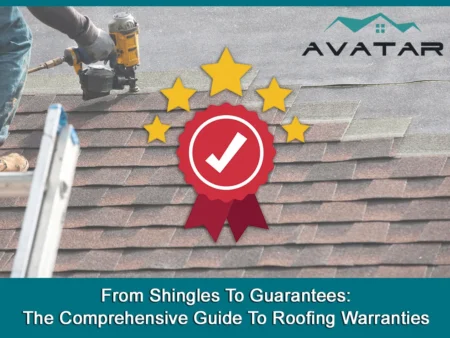
Understanding roofing warranties is crucial for homeowners to ensure they are adequately protected against potential issues with their roofs. A warranty can be seen as a manufacturer’s or contractor’s promise to stand behind their product or workmanship. However, not all warranties are created equal, and it’s essential to know the differences.
Types of Roofing Warranties
1. Standard Manufacturer’s Warranty: This warranty typically covers defects in roofing materials, such as shingles. It usually does not cover the cost of labor to install replacement materials or damages caused by the defective materials. These warranties can vary in length, but they generally last 20 to 30 years.
2. Extended Manufacturer’s Warranty: This type of warranty is an extension of the standard warranty. It often includes additional coverage, such as workmanship or the entire roofing system (including underlayment, flashings, etc.). Extended warranties may require additional fees and are usually offered through certified contractors.
3. Workmanship Warranty: Offered by roofing contractors, this warranty covers errors in the installation process. It includes issues like leaks, improper flashing, or incorrect installation. The duration of these warranties can vary, but they are typically shorter than manufacturer warranties, ranging from 2 to 10 years.
4. Full-System Warranty: This comprehensive warranty covers all components used in the installation of a roof, including shingles, underlayment, and flashings. It’s a more holistic approach, ensuring that the entire roofing system is covered under one warranty.
What Homeowners Should Know
– Read the Fine Print: Warranties can have various exclusions and limitations. It’s crucial to read and understand the terms and conditions. For example, some warranties may not cover damages due to natural disasters or improper maintenance.
– Maintenance Requirements: Most warranties require homeowners to maintain their roofs in good condition, which includes periodic check-ups and necessary repairs. Neglecting maintenance can void the warranty.
– Transferability: Some warranties are transferable to new homeowners, which can be a selling point if you plan to sell your home. However, transfer terms can vary, and there might be fees or notification requirements involved.
– Installation Standards: For workmanship warranties, the quality of installation is key. Hiring a reputable, certified contractor who adheres to proper installation standards is crucial. Poor installation can lead to issues that might not be covered under the manufacturer’s warranty.
– Warranty Registration: Some warranties require registration within a certain timeframe after installation. Failing to register can result in losing warranty coverage.
– Understanding What Voids a Warranty: Certain actions can void a warranty, such as installing a new roof layer over old shingles or making unauthorized modifications. Be aware of these conditions to maintain the validity of your warranty.
In conclusion, while understanding the intricacies of roofing warranties is essential for homeowners, finding a reliable and expert roofing service is equally important. For residents in the Tampa Bay area, Avatar Roofing emerges as a standout choice. With a commitment to quality and customer satisfaction, Avatar Roofing not only provides expert installation but also helps in navigating the complexities of roofing warranties. Their experienced team ensures that your roof is not only aesthetically pleasing but also structurally sound and compliant with warranty requirements. Choosing Avatar Roofing means peace of mind, knowing that your roofing needs are in the hands of professionals who are dedicated to excellence in service and support.
Picture Credit: iStock